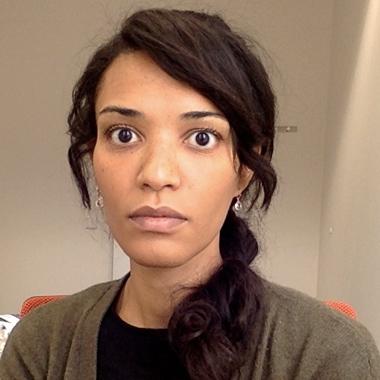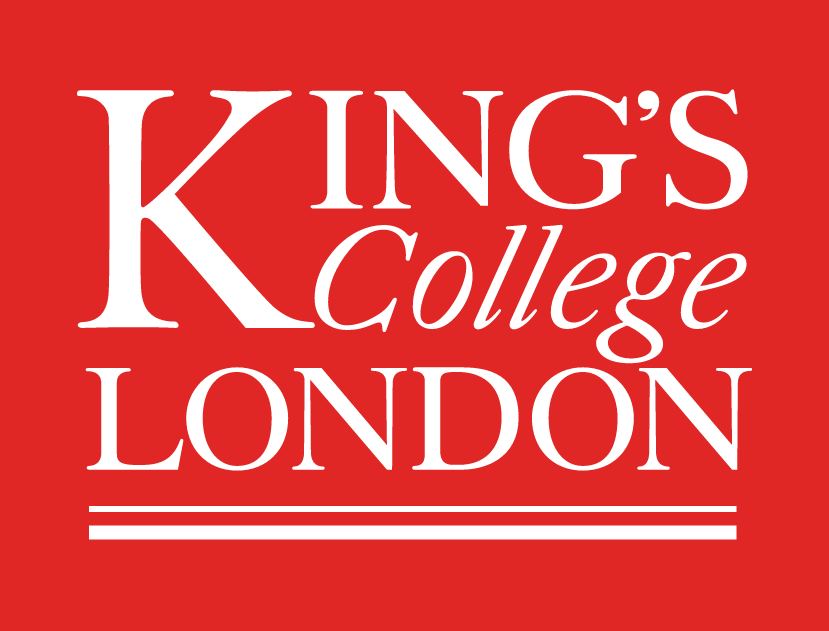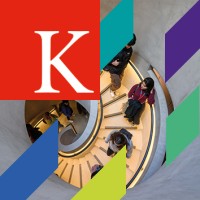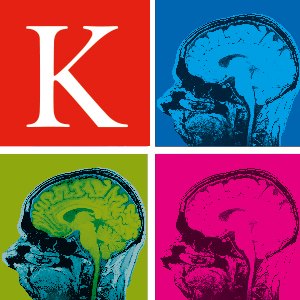Digital Music Research Network One-day Workshop 2025
Tuesday 16th December 2025
🕚 10:00–17:00
📍 King’s College London (in person only)
News
- Photos
- Keynote speaker: Julian Parker (Stability AI)
- Registration
- Submission deadline: 14th November
- Programme details: TBA
- Proceedings: TBA
- Join DMRN on LinkedIn
- Join MARC on LinkedIn
Introduction

Welcome! DMRN+20 marks the 20th edition of DMRN. Moreover, this annual gathering has a pre-history under other names, making it an institution that’s more like 25 years old! This year, we celebrate that history and the ever-growing presence of music computing in and around London. As well as the usual offering (top-notch research and friendly social atmosphere), we’ll also consider the past and future of DMRN, and the possible roles for a regionally organised network of this kind in the few (perhaps even 25) years. This event is hosted at KCL in collaboration with – but outside of – C4DM for the first time in many years, and takes the theme “Collaboration, Coordination, and Community”.
Theme: “Collaboration, Coordination, and Community”.
This years’ theme is “Collaboration, Coordination, and Community”. You may like to include a nod to this theme in your submission (this is optional!) and/or in your chats with others at the event. For example, you might like to discuss research communities at both local (e.g., DMRN) and global (e.g., ISMIR) scales. Likewise, you might give thought to the wider music scholarship communities with which we sometime have less interaction than we ought (e.g., ICMPC). And what about the much wider communities of musicians (professional and amateur) in London and beyond? What does successful collaborative, coordinated, and community-oriented work looks like, and what might DMRN’s role be?
The Keynote speakers have been chosen to reflect this theme and perhaps to spark some of those conversations.
A brief history of DMRN, London, and KCL
The original proposal that led to what we know as DMRN was called the “Music Processing Network (MuProNet)”. MuProNet was submitted from KCL in May 2001, before Mark Plumbley, Mark Sandler, Mike Davies and others moved to QMUL later in 2001/2. At King’s the proposal also included Tim Crawford (in Music), and the late Costas Iliopoulos (in Computer Science).
DMRN has been hosted (under both names) at QMUL for many years, under the stewardship of the wonderful and world-famous C4DM: probably the largest single-institution centre for MIR research in the world.
The London chapter of music computing is rightly proud of the C4DM, as it is of the many other centres “in town”, each with their own unique flavour. Many of us headed to City St George earlier this year for the Music Encoding conference and to the University of the Arts for Responsible AI events. Then there’s Goldsmiths, Imperial, UCL, as well as several conservatoires and more. And naturally, DMRN attracts proposals and attendance from much further afield.
It’s a topical time for DMNR to come/return to KCL. KCL has recently hired several sound and music computing scholars to faculties across the university. The past year alone has seen Mark Plumbley return to KCL as Head of Informatics, Julie Meyer appointed to Engineering, and Mark Gotham to the Department of Digital Humanities. They (we) join Elaine Chew, Zoran Cvetkovic and other longer-serving KCL academics. In recognition of this recent boon, we have created the cross-KCL Music and Acoustics Research Centre (“MARC”, https://marc.kcl.ac.uk/). It seems fitting, that in 2025, around 25 years after its origin, the (now-called) DMRN returns to KCL.
This is one short history of DMRN among many. We encourage all members of the community to think about the past and future of DMRN. What stories do you have? What has this network achieved? What could it do? What indeed is the role of a regionally organised network in 2025? What should it focus on in 2026 and beyond?
Keynote

Dr Julian Parker (Stability AI)
Anatomy of a modern music generation model
Generation of long-form musical audio using generative AI is one of the major developments of the last few years. In this talk, I walk through the principles behind such a model, how it is constructed, and the many design choices that must be made to ensure production-level quality – illustrated by examples from the Stable Audio model series.
Julian Parker, born in the UK, holds a B.A. (Hons.) in Natural Sciences from the University of Cambridge (2005), UK, an M.Sc. in Acoustics & Music Technology from the University of Edinburgh (2008), UK, and a D.Sc. (Tech.) in Audio Signal Processing and Acoustics from Aalto University, Finland (2013). His doctoral work focused on computational modelling of dispersive physical systems in the audio frequency range. He has held leadership positions in industrial research at companies such as Native Instruments, TikTok and Stability AI, focusing on processing and generating of musical sound using both traditional signal processing techniques, machine learning and AI. His current research interests are in generative modelling of musical audio, audio coding, and in the intersection between signal processing and neural network structures.
Invited Panel



- Dr Oded Ben-Tal (Kingston University London)
- Dr Diana Omigie (Goldsmiths, University of London)
- Dr Charalampos Saitis (Queen Mary University of London)
Interdisciplinary Frontiers in Music Research
We are witnessing a fast-changing research landscape with the advent of deep learning and other data-centric methods applied to ever growing list of domains we used to consider the preserve of humans alone. Within this context, it is sometimes difficult to distinguish between genuine breakthroughs, over excited reporting, and hyped-up marketing. The aim of this panel is to stimulate discussion on current frontiers in music research with emphasis on interdisciplinary approaches. What are the questions we should be asking and aren’t? How can we facilitate cross-disciplinary research to address those questions? And how might local networks such as DMRN support individuals to navigate these challenges?
Call for Contributions
You are invited to submit a proposal for a “talk” and/or a “poster” to be presented at this event.
TALKS may range from the latest research, through research overviews or surveys, to opinion pieces or position statements, particularly those likely to be of interest to an interdisciplinary audience. We plan to keep talks to about 15 minutes each, depending on the number of submissions. Short announcements about other items of interest (e.g. future events or other networks) are also welcome.
POSTERS can be on any research topic of interest to the members of the network.
The abstracts of presentations will be collated into a digest and distributed on the day.
* Submission
Please prepare your talk or poster proposal in the form of an abstract (1 page A4, using the template [ Word template, LaTeX ]. Submit it via email to dmrn@lists.eecs.qmul.ac.uk giving the following information about your presentation:
- Authors
- Title
- Preference for talk or poster (or “no preference”)
* Deadlines
- 14 Nov 2025: Abstract submission deadline
- 21 Nov 2025: Notification of acceptance
- 15 Dec 2025: Registration deadline
- 16 Dec 2025: DMRN+20 Workshop
We expect that at least one author is prepared to attend this event in person.
Registration
We are highly conscious of the cost of living right now, especially for students, and especially in the centre of London. Partly for this reason, registration will be free. Registration is open from 20th October. Capacity is limited so please only book if you’re coming. In case of issues, priority will be given to speakers (obviously!).
Free registration should save attendees not only money but also administrative hassle (of navigating yet another one-time login to a payment portal to pay and/or the none-too-trivial business of attempting to get it reimbursed). Food options are available (as below) including some that are good for those on the tightest of budgets.
Practicalities
Food
There will be modest refreshments at the event. There are also many places to eat at KCL and the surrounding area. As mentioned above, we are highly conscious of the cost of living right now, especially for students, and especially in the centre of London. In outlining some of the culinary options, we included notes on various ways to save money.
The main food outlets of KCL’s Strand campus are listed here.
Of these, some main options:
In Bush House:

King’s Kitchen is a large dining hall with several hot options. On a budget? Get the highly subsidised jacket potato (c.£1.50) or soup (<£3).
Roots Plant-Based Cafe is a vegan café with a hot option at the top (8th) floor of the historic Bush house. Great views, especially if the terrace is open. On a budget? BYO: there’s nothing especially cheap up here, but it’s totally fine to bring your own.

In the Strand building and connected areas:

Chapters is the main café in the Strand building area. On a budget? Get the soup which is subsidised and costs under £3.
The Terrafe Café is small but charming and includes a terrace (as you might expect) that overlooks the Thames. On a budget? BYO and/or make use of the microwaves available.

All attendees can use any of these, paying with regular bank card (there’s no secret KCL card or handshake required).
At lunch time we’ll take a quick poll and the KCL regulars will lead small teams to some or all of these outlets. You can also simply hang around at the venue and continue chatting over the posters (in which case, clearly BYO lunch).
Beyond KCL, there are lots of options from grabbing a sandwich as the nearby shops (e.g., there’s a Tesco right there) to the many restaurants on the Strand, and in Covent Garden (a short walk away).
Lanyards
We will not be making lanyards for the occasion. We take the view that single-use lanyards are simply awful. You get this piece of plastic, can’t return it, can’t re-use, and can’t recycle it. Why not bring a lanyard from your own institution, or from a recent conference. Call it a conversation starter! KCL members will be wearing their lanyards (red or multi-colour strap), so we should be easy to identify.
Organising Team and Contact
At KCL (first_name.last_name@kcl.ac.uk):
- Lead: Mark Gotham
- Advisory team: Elaine Chew, Zoran Cvetkovic, Julie Meyer, Mark Plumbley.
At C4DM (first_initial.last_name@qmul.ac.uk):
- Lead: Alvaro Bort
- Advisory team: Simon Dixon
Venue (Details TBC)
King’s College London -Strand campus, 30 Aldwych, London, WC2B 4BG
Register at Bush House SE entrance 10:00 to 10:30am ( in case of problems email Alvaro Bort and Mark Gotham)
Programme
Programme
| 10:00 | Registration & Coffee (Register at Bush House SE entrance before 10:30am) |
| 10:25 | Welcome – Mark Gotham |
| 10:30 | KEYNOTE: Bush House Lecture Theatre 1 BH(S)1.01“Anatomy of a modern music generation model”. Dr Julian Parker (Stability AI) |
| 11:25 | Break |
| 11:45 | Poster session |
| 13:00 | Lunch |
| 13:30 | Talks (Session 1). Chair: Julie Meyer. |
| 13:30 | “AudibleLight (RC): A Controllable, End-to-End API for Soundscape Synthesis Across Ray-Traced & Real-World Measured Acoustics”, Huw Cheston (Queen Mary University of London, UK) |
| 13:45 | “What music do people use for mood regulation?”, Catherine Tan (Centre of Excellence in Music, Mind, Body and Brain, Jyväskylä, FI and Centre for Music and Science, Cambridge, UK) |
| 14:00 | “Music Representation Learning for Efficient Multimodal Retrieval”, Antonio Hidalgo-Centeno (University of Alicante, Spain) |
| 14:15 | “Differentiable Karplus-Strong”, Pablo Tablas de Paula (Queen Mary University of London, UK) |
| 14:30 | “Memory Records: a musical memory archive fuelled by computing, citizen science and global participation”, Safiyyah Nawaz (Goldsmiths University of London, UK) |
| 14:45 | Break |
| 15:00 | Talk (Session 2). Chair: Elaine Chew. |
| 15:00 | “Multimodal Film Music Dataset”, Farshad Jafari (Faculty of Music, Cambridge, UK) |
| 15:15 | “Benchmarking Musical Reasoning over Jazz Improvisation: A Collaborative Annotation Project”, Ivan Shanin (Queen Mary University of London, UK) |
| 15:30 | “Building Knowledge Graphs for AI-Driven Research on European Music Cultural Heritage: Outcomes from the Polifonia Project”, Albert Meroño Peñuela (King’s College London, UK) |
| 15:45 | “Korvax: Audio Processing and Machine Learning in JAX”, David Marttila (Queen Mary University of London, UK) |
| 16:00 | Break |
| 16:15 | Invited Panel: Current frontiers in music research with emphasis on interdisciplinary approaches Chair: Mark Plumbley Dr Oded Ben-Tal (Kingston University London) Dr Diana Omigie (Goldsmiths, University of London) Dr Charalampos Saitis (Queen Mary University of London) |
| 17:00 | Close and head to the Cheshire Cheese, 5 Little Essex Street, Temple, London, WC2R 3LD |
Talks: DMRN+20 Talks [PDF 2,093KB]
| Session 1: | |
| 1 | “AudibleLight (RC): A Controllable, End-to-End API for Soundscape Synthesis Across Ray-Traced & Real-World Measured Acoustics”, Huw Cheston (Queen Mary University of London, UK), Adrian Stepien, Juan Azcarreta (Reality Labs Research, Meta, UK), Adrian S. Roman, Chuyang Chen (New York University, USA), Cagdas Bilen (Reality Labs Research, Meta, UK) and Iran R. Roman (Queen Mary University of London, UK) |
| 2 | “What music do people use for mood regulation?”, Catherine Tan (Centre of Excellence in Music, Mind, Body and Brain, Jyväskylä, FI and Centre for Music and Science, Cambridge, UK) and Peter M. C. Harrison (Centre for Music and Science, Cambridge, UK) |
| 3 | “Music Representation Learning for Efficient Multimodal Retrieval”, Antonio Hidalgo-Centeno, Eliseo Fuentes-Martínez, Daniel Espinosa-Canovas and Antonio Javier Gallego (University of Alicante, Spain) |
| 4 | “Differentiable Karplus-Strong”, Pablo Tablas de Paula, David Marttila and Joshua D. Reiss (Queen Mary University of London, UK) |
| 5 | “Memory Records: a musical memory archive fuelled by computing, citizen science and global participation”, Safiyyah Nawaz, Manuel Anglada-Tort, James Brown, Cooper Overton, Felix Noble and Diana Omigie (Goldsmiths University of London, UK) |
| Session 2: | |
| 6 | “Multimodal Film Music Dataset”, Farshad Jafari (Faculty of Music, Cambridge, UK) and Claire Arthur (Georgia Institute of Technology, US) |
| 7 | “Benchmarking Musical Reasoning over Jazz Improvisation: A Collaborative Annotation Project”, Ivan Shanin (Queen Mary University of London, UK), Dimitrios Vassilakis (National and Kapodistrian University of Athens, Greece) and Simon Dixon (Queen Mary University of London, UK) |
| 8 | “Building Knowledge Graphs for AI-Driven Research on European Music Cultural Heritage: Outcomes from the Polifonia Project”, Albert Meroño Peñuela (King’s College London, UK), Jacopo de Berardinis (University of Liverpool, UK) and Valentina Presutti (University of Bologna, IT) |
| 9 | “Korvax: Audio Processing and Machine Learning in JAX”, David Marttila and Joshua D. Reiss (Queen Mary University of London, UK) |
Posters: DMRN+20 Posters [PDF 3,694KB]
| 1 | “SAR-LM: Symbolic Audio Reasoning with Large Language Models”, Termeh Taheri, Yinghao Ma and Emmanouil Benetos (Queen Mary University of London, UK) |
| 2 | “Exploring the suitability of the Digital Audio Workstation (DAW) for the digital native user”, Vanja Budsberg and Christopher Dewey (University of Huddersfield, UK). |
| 3 | “Generative Sound or Generating Sound? Rethinking Creativity through Ethnographies of London’s EMOM and the Gear Economy”, Yinuo Chen (King’s College London, UK) |
| 4 | “melody-features: A Python Package for Symbolic Melody Analysis”, David M. Whyatt and Peter M. C. Harrison (Centre for Music and Science, Cambridge, UK) |
| 5 | “Taking Advantage of Emergent Properties of a Transformer for Music Representation Learning “, Yuexuan Kong (Deezer Research, Paris, FR and Centrale Nantes, CNRS, LS2N, UMR 6004, F-44000 Nantes, FR), Vincent Lostanlen (Centrale Nantes, CNRS, LS2N, UMR 6004, F-44000 Nantes, FR), Romain Hennequin (Deezer Research, Paris, FR), Mathieu Lagrange (Centrale Nantes, CNRS, LS2N, UMR 6004, F-44000 Nantes, FR) and Gabriel Meseguer-Brocal (Deezer Research, Paris, FR) |
| 6 | “Digging into Atlas: Engaging with Archived Code and Sound”, Iain Emsley (University of Warwick, UK) |
| 7 | “Modelling the Effectiveness of Musical Features in Sonic Logos”, Ciara Black, Dr. Manuel Anglada-Tort (Goldsmiths, University of London, UK), Prof. Daniel Müllensiefen (Universität Hamburg, Germany) and Björn Thorleifson (amp Sound Branding, Germany) |
| 8 | “Semi-Supervised Learning with Graph Neural Networks for Roman Numeral Analysis”, Aikaterini Maria Primenta and Johan Pauwels (Queen Mary University of London, UK) |
| 9 | “Towards Intelligent Music Education: Score-Informed Transcription and Performance Assessment”, Aikaterini Maria Primenta, Jackson Loth, Jingjing Tang, Xavier Riley, Simon Dixon and Emmanouil Benetos (Queen Mary University of London, UK) |
| 10 | “Evaluating Pre-trained Audio Encoders for Audio-to-Score Music Transcription”, Antonio Hidalgo-Centeno, Carlos Penarrubia and Jose J. Valero-Mas (University of Alicante, Spain) |
| 11 | “Towards Cross-Cultural Modelling of Instrumental Difficulty”, Rui Yang, Mathieu Giraud ((Univ. Lille, CNRS, Centrale Lille, UMR 9189 CRIStAL, F-59000 Lille, FR) and Florence Levé (Univ. Lille, CNRS, Centrale Lille, UMR 9189 CRIStAL and Univ. Picardie Jules Verne, MIS, UR 4290, FR) |
| 12 | “Evaluation of Foundation Models on Timbre Cognition Tasks”, Georgios Velissaridis, György Fazekas and Charalampos Saitis (Queen Mary University of London, UK) |
| 13 | “Validating Few-shot Bird Vocalisation Detection through Causal Explanations”, Nico García-Peguinho (Queen Mary University of London, UK), David Kelly, Melane Navaratnarajah, Hana Chockler (King’s College London, UK) and Anna Xambó Sedó (Queen Mary University of London, UK). |
| 14 | “Building an Elgar’s Works Catalogue Using Multimodal LLMs”, Sebastian Oliver Eck (University of Oxford, UK), Joanna Bullivant (Royal Birmingham Conservatoire, UK), Daniel Grimley, David Lewis, Kevin Page and Frankie Perry (University of Oxford, UK) |
| 15 | “Modelling Pitch Expectation in Melody: A Comparison of Variable-Order Markov and Transformer-Based Approaches”, Ioannis Emmanouilidis and Marcus Pearce (Queen Mary University of London, UK). |
| 16 | “Towards Real-Time, Stable Mapping from Multimodal Sensing to Interpretable Timbre Axes”, Lianganzi Wang, Iran R. Roman and Anna Xambó Sedó (Queen Mary University of London, UK) |
| 17 | “An Implicit Measure of Similarity Perception in Music”, Cristian Constantinescu (London Interdisciplinary School, UK) and Daniel Müllensiefen (Universität Hamburg, Germany) |
| 18 | “Learning Brand Sounds: Neural and Behavioural Signatures of Exposure in Sonic Branding”, Mona Giff, Louisa Grantz (Goldsmiths, University of London, UK), AMP (AMP Sound Branding. UK) and Manuel Anglada-Tort (Goldsmiths, University of London, UK) |
| 19 | “Hypermetre Tracking Using Deep”, Jose Esquivel and Jordan B. L. Smith (Queen Mary University of London, UK) |
| 20 | “Making beats with percussive sound spaces”, Gerard Roma (University of West London, UK) |
| 21 | “A Comprehensive Music Interaction Platform for Evaluating Music Generation Models”, Yinghao Ma (Queen Mary University of London, UK), Haiwen Xia (Peking University, China), Weixiong Chen, Termeh Taheri, Sungkyun Chang (Queen Mary University of London, UK), Hewei Gao (Technical University of Munich, Germany), Ruibin Yuan (Hong Kong University of Science and Technology, China), Mingshuo Ding (Peking University, China) and Emmanouil Benetos (Queen Mary University of London, UK) |
| 22 | “Controlled Genre-Specific Music Generation: Fine-Tuning with Predictive Data Mixture Optimization”, Yinghao Ma (Queen Mary University of London, UK), Yizhi Li (University of Manchester, UK), Emmanouil Benetos (Queen Mary University of London, UK) and Chenghua Lin (University of Manchester, UK) |
| 23 | “LLM-based Assessment and Feedback Understanding for Music Performance Exams”, Huan Zhang, Sungkyun Chang, Emmanouil Benetos and Simon Dixon (Queen Mary University of London, UK) |
| 24 | “Curating rhythm datasets through drum layering”, Prashanth Thattai Ravikumar (Goldsmiths, University of London, UK) |
*There will be an opportunity to continue discussions after the Workshop in a nearby Pub/Restaurant for those in London.





